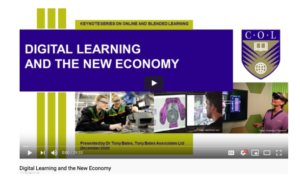Using Labour Market Information for Career Development in the Changing World of Work
I was invited to make a presentation earlier this week to the European Union Horizon 2020 HECAT project exploring the use of algorithms within public employment systems. Waterford (Ireland) Institute of Technology is coordinating the project and according to the WaterfordLive web site “HECAT is a sociologically and anthropologically led project to make data trapped in public employment systems (PES) and national statistical offices available to unemployed people and those trying to help them to improve their personal decision-making and visionary future.” Dr Griffin from the Institute said: “Everyone is concerned or should be worried about how algorithms and big data is being used in the labour market, we cannot put the technology genie back in the bottle, rather we need to figure out how to make the output from these novel technologies ethical, fair and transparent. We need to crack them open sociologically and anthropologically so that traditional researchers can fully understand how they operate and communicate that to the public.”
Anyway here are my slides.





